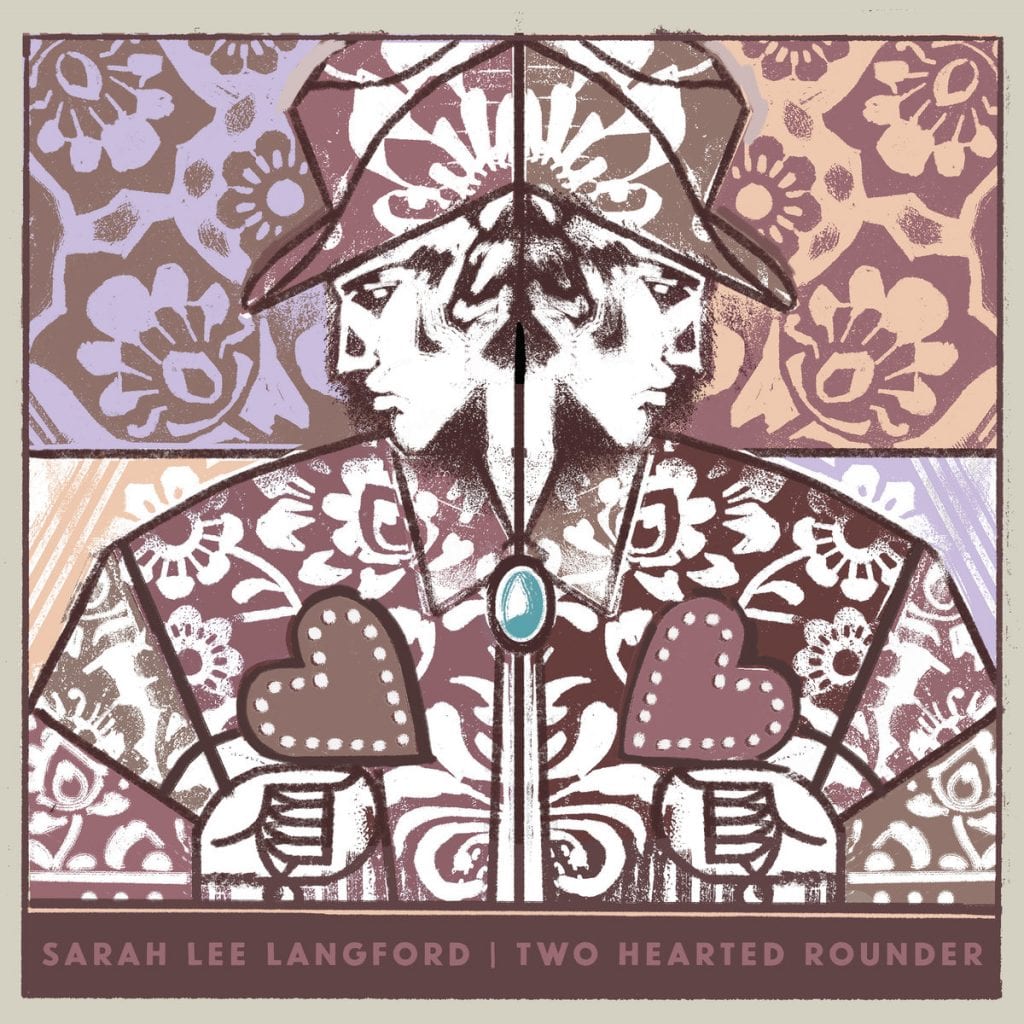Sarah Lee Langford’s Striking Debut Wrestles with Desire and Disappointment

EDITOR’S NOTE: In December, we like to take a look back at albums we didn’t get around to reviewing earlier in the year. Two Hearted Rounder was released in November.
Calm, determined, and plainspoken, Sarah Lee Langford would be a good person to have on your side during a crisis. Don’t expect a soothing vibe from this Birmingham, Alabama, native, however: Two Hearted Rounder, her remarkable debut album, is a study in controlled tension, setting vivid tales of aching need and lovesick distress against a sturdy, old-school country backdrop tinted by dreamy accents.
Langford has the kind of strong, clear voice that would flourish in all manner of settings, from primal rock and roll to cabaret pop. But like Iris DeMent, she probably couldn’t sound frivolous or sweet if her life depended on it. Displaying little patience for foolishness or fuzzy thinking, Langford exclaims, “The words that you’re speaking are such a goddamn riddle / I won’t play second fiddle,” on the haunting title track, and declares, “You were letting me down without fail,” in the brooding “What Came First.”
For all her eloquent directness, Langford doesn’t pretend to be in charge of the situation, chronicling a tug-of-war between the desire for self-reliance and the vulnerability necessary in any meaningful relationship. Lust and love stir up trouble on the boozy shuffle “Bar Stool,” where she says, “You’re the best one that I’ve found / Try not to let me down,” and while heartache may lurk around every corner, Langford seems undaunted. Telling a feckless partner, “Your words ain’t worth a dime,” she adds brightly, “Someday if you have some feelings / I will be your beautiful regret,” on the jaunty “Watch Me.”
If Langford ultimately has to go it alone, as “Sing My Own Love Song” implies, she does have trusty partners in guitarist Will Stewart and pedal steel player Ford Boswell, whose concise solos and restrained fills create an atmosphere of muted angst. Avoiding histrionics and Nashville clichés, they bring an engaging sagebrush twang to “Growing Up” and wrap the title track in a cloud of gentle regret.
A good man is hard to find, which doesn’t stop Langford from looking. On “Big Women,” a catchy toe-tapper that could easily become a commercial anthem for a mainstream country act, she identifies the real problem, namely, male insecurity. “You don’t like strong women / With their love a-running wild,” Langford notes without rancor, probably because she’s encountered the same attitude many times before.
Hopefully this savvy observer will be filing more revealing dispatches from the front lines of modern romance soon.


